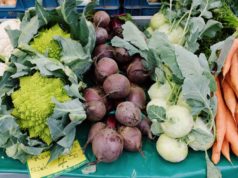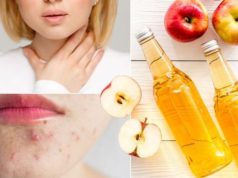Are you spending hundreds of dollars a month on anti-aging and acne-fighting products, only to wake up looking tired and broken out? It might be time to take a closer look at your diet.
The foods you eat can drastically affect the appearance and health of your skin. Read on to learn what you should be eating and what you should be avoiding if a smooth, glowing complexion is at the top of your must-have list.
Eat More of These
The following foods contain a number of important vitamins and nutrients that are great for the skin (as well as the rest of the body). Add these to your diet several times a week to give your skin the boost it needs.
1. Nuts and Seeds
Nuts and seeds, especially almonds, walnuts, and chia seeds, good sources of omega-3 fatty acids. They fight inflammation in the body and hydrate the skin. This helps prevent wrinkles and makes your skin look younger.
If you’re a vegetarian or vegan, make sure you’re getting plenty of these foods in your diet so you’re not missing out on important fatty acids.
Almonds also contain vitamin E, which is an antioxidant that protects the skin from damage caused by the sun and free radicals in your environment.
2. Oily Fish
Oily fish like salmon and tuna are both rich in essential B vitamins, specifically vitamin B5 (pantothenic acid) and vitamin B3 (niacin). All B vitamins, but these, in particular, are necessary for healthy skin.
Niacin improves hydration and skin texture while reducing wrinkles and signs of hyperpigmentation. Pantothenic acid promotes wound healing and helps reduce the appearance of scars and bruises.
In addition to being good sources of B vitamins, these fish also provide tons of omega-3 fatty acids.
3. Carrots and Sweet Potatoes
Carrots and sweet potatoes are both rich in vitamin A. Vitamin A protects our skin from sun damage and wrinkles. It also promotes healthy cell and tissue growth and helps strengthen the skin to make it easier for your body to fight off infections.
4. Complex Carbs
White flour and other processed carbohydrates have been known to increase inflammation and have been linked to acne flare-ups. Complex carbs like quinoa, barley, and beans, though have a lower glycemic index and may reduce acne.
It’s unclear exactly why this is, but researchers believe it has to do with the fact that low-glycemic foods help your body maintain study insulin levels, while refined carbohydrates cause a blood sugar spike that increases the production of other hormones that are linked to breakouts.
5. Citrus Fruits
Citrus fruits like oranges and grapefruit are high in vitamin C. Vitamin C is another antioxidant that can protect the skin from free radical damage. It also helps your body produce the structural protein collagen, which is essential for healthy, vibrant skin, hair, and nails.
In addition to citrus fruits, you can also get vitamin C from fruits like strawberries, kiwis, and guava. It’s present in bell peppers, broccoli, and kale, too.
6. Dark Chocolate
 Growing up, you probably were told not to eat a lot of chocolate because it would make you break out. This might be true for the sugary milk chocolate that most people prefer. But, dark chocolate is a different story.
Growing up, you probably were told not to eat a lot of chocolate because it would make you break out. This might be true for the sugary milk chocolate that most people prefer. But, dark chocolate is a different story.
High-quality, low-sugar dark chocolate (at least 70 percent cacao) contains flavanols, a type of antioxidant that can prevent wrinkles, improve the elasticity of the skin, and protect the skin from UV damage.
7. Turmeric
Turmeric has antioxidant and anti-inflammatory properties. Because of this, it promotes glowing, lustrous skin. It also improves blood circulation, which is important for helping your body heal wounds and repair damage to the skin and other organs.
Turmeric is also effective in preventing damage caused by UVB rays, including thickening skin, wrinkles, hyperpigmentation, enlarged blood vessels, and decreased elasticity.
Avoid These
Of course, there are also some foods that don’t do your skin any favors when you eat them in excess. The following are among those that contribute the most to breakouts, wrinkles, and other skin issues.
1. Sugar
Candy and sugary snacks spike your blood sugar. This sets off the process of glycation, which causes sugars to attach proteins and form molecules known appropriately as advanced glycation end products (AGEs). AGEs build up in the skin over time and cross-link with your elastin and college fibers. This weakens the skin and leads to sagging and wrinkles.
2. Dairy Products
Milk and other dairy products have also been found to be problematic for the skin. There are two reasons why experts think this is the case.
First, the androgens in milk have the potential to increase the drinker’s androgen levels. Androgens have been linked to increased oil production and acne.
Second, dairy can cause an insulin spike. It also contains growth factors that act similar to insulin. The combination of these two things can lower the body’s production of molecules that deactivate hormones. As a result, you’ll have more androgens that can boost oil production and lead to breakouts.
3. Fried Foods
Greasy fried foods also don’t do your skin any favors. This is especially true for foods that are fried in vegetable oil. At high heats, vegetable oil is highly oxidative and releases a ton of free radicals into the body. These free radicals put stress on the cells and cause inflammation while also making them age more quickly.
Not all oils are bad, of course. Olive oil, for example, contains the omega-3s that are so beneficial for skin health. It’s important to avoid overheating olive oil, though, as this causes it to break down and lose its nutritional value.
Final Thoughts
If you want healthy, clear skin, eliminating certain foods and increasing your consumption of others can make a world of difference.
If your topical skincare products aren’t working — or if you just want to up the ante to really benefit your skin — start thinking about healing your body from the inside out, rather than the outside in.











